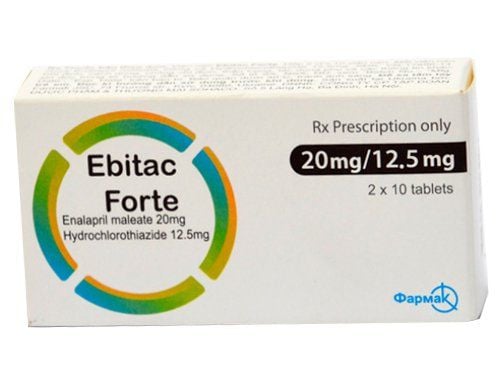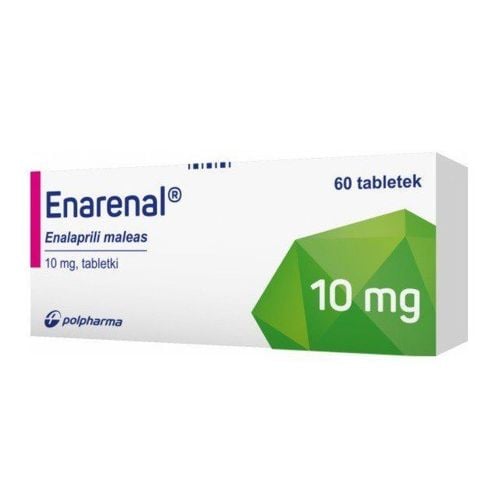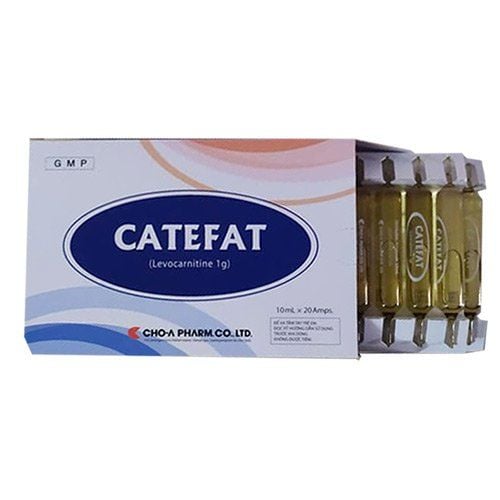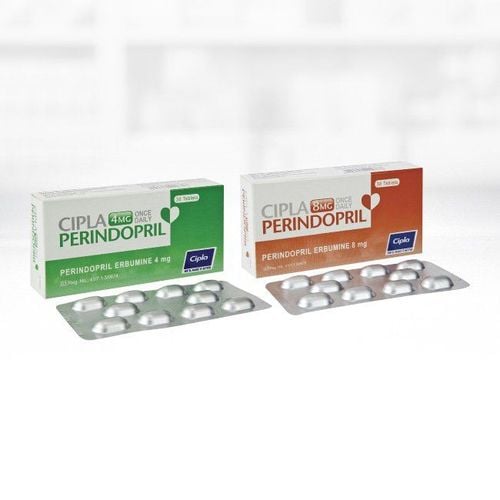This is an automatically translated article.
Betaloc drug 50mg is used to treat hypertension, tachycardia, cardiac dysfunction but has many contraindications such as severe asthma, heart failure, second-degree atrial block... So to find out What exactly is Betaloc 50 mg? Side effects when using Betaloc 50mg through the article below.
1. Effects of Betaloc 50 mg
1.1. What is Betaloc 50mg? Betaloc 50 is a product of AstraZeneca Pharmaceutical Co., Ltd. - England, whose main ingredient is Metoprolol belonging to the group of beta receptor blockers, the drug is prepared in the form of tablets with a content of 50 mg.
1.2. What are the effects of Betaloc 50? Betaloc 50mg is prescribed by doctors to be used in the following cases:
Treatment of patients with hypertension: Helps reduce blood pressure, reduce the rate of hypertensive crisis and minimize the risk of death due to hypertension. cardiovascular disease and coronary heart disease (including sudden death). Prophylactic treatment of angina pectoris. Treatment of some tachyarrhythmias: ventricular tachycardia (ventricular tachycardia, paroxysmal tachycardia) or supraventricular tachycardia (atrial fibrillation tachycardia and atrial flutter, junctional tachycardia). Maintenance therapy after myocardial infarction has been stabilized. Support for treatment of heart failure Treatment of cardiac dysfunction with palpitations. 1.2.1. In the treatment of hypertension (high blood pressure) Betaloc 50mg tablets belong to a group of drugs known as long-acting beta-blockers. The medicine slows your heart rate and helps it beat with less force. This effect lowers your blood pressure and helps reduce your risk of having a stroke, heart attack, other heart problems, or kidney problems in the future. This medicine needs to be taken regularly to be effective, so keep taking it even if you feel well. Do not arbitrarily stop medication without consulting your doctor
1.2.2. In the treatment of angina (heart-related chest pain) Betaloc 50mg Tablets help relax blood vessels so blood can flow more easily around your body and ensure that your heart is well supplied. enough oxygen. This makes you less likely to experience chest pain from angina. Betaloc can help improve your ability to exercise and go about your day-to-day life by reducing the frequency of angina attacks. You should take the medicine regularly, but it needs to be under the supervision of a doctor for it to work effectively.
1.2.3. In the treatment of arrhythmia Betaloc 50mg tablets are used to stabilize the heart rhythm (especially atrial fibrillation). It helps to normalize an abnormal heart rhythm, prevent it from happening in the first place, or slow it down during a course of treatment.
1.2.4. Heart attack prevention Betaloc 50mg tablets help lower blood pressure and help the heart pump blood around the body more easily. This reduces your risk of having a heart attack. The drug can also reduce the risk of death if given right after a heart attack. Betaloc should be taken regularly to be effective, so keep taking it even if you feel well. Do not arbitrarily stop medication without consulting your doctor
1.2.5. Migraine prevention Betaloc 50 tablets help change electrical activity in your brain, decrease blood flow in your brain, or increase activity in an area of the brain involved in migraines. By preventing and reducing the frequency of migraine attacks, medication can help you perform your daily activities and improve your quality of life.
2. Usage of Betaloc 50mg
2.1. How to take Betaloc 50mg Swallow the tablet whole, do not crush or mix with other mixtures. Taking the drug with or immediately after eating, taking the drug with a meal increases the bioavailability of the drug.
2.2. Dosage of Betaloc 50 2.2.1. Hypertension The recommended dose for patients with hypertension is 100 to 200 mg/day in 2 divided doses in the morning and evening. If necessary, the doctor may prescribe an increase in the dose or combination with other antihypertensive drugs. Long-term antihypertensive therapy with Betaloc 50 at a daily dose of 100 to 200 mg has been shown to reduce patient mortality including death from stroke, cardiovascular events, and coronary events. in hypertensive patients. 2.2.2. Prophylaxis of angina The recommended dose is 100-200 mg/day, divided into two doses, morning and evening. If necessary, it can be combined with other antianginal agents. 2.2.3. Cardiac arrhythmias The recommended dose is 100-200 mg/day, divided into morning and evening doses. If necessary, it can be combined with other antiarrhythmic drugs. 2.2.4. Maintenance therapy after myocardial infarction Long-term oral therapy with Betaloc at a dose of 200 mg/day in divided doses in the morning and evening has been shown to reduce the risk of death (including sudden death) and the risk of recurrence. myocardial infarction (including patients with diabetes mellitus). 2.2.5. Cardiac dysfunction with palpitations The recommended dose is 100 mg/day, once daily in the morning. If necessary, the dose can be increased to 200 mg. 2.2.6. Support for treatment of heart failure grade II heart failure: half a tablet, once a day, for 2 weeks, then increase the dose to 1 tablet each time, continue for 2 weeks and then double the dose until use. Maximum dose is 4 tablets at a time. Heart failure grade III or IV: With the same increase in dose as above, the starting dose will be 1/4 pill each time 2.2.7. Impaired liver function No dosage adjustment is required for patients with cirrhosis because of low plasma protein binding of metoprolol (5 - 10%). In the presence of signs of severe hepatic impairment (eg, patients with anastomosis) dose reduction should be considered. 2.2.8. Impaired renal function and the elderly No dose adjustment is required. 2.3. Overdose Care should be taken in medical facilities with adequate supportive equipment, monitoring and supervision.
If appropriate, gastric lavage and/or activated charcoal may be used. Atropine, sympathomimetic stimulants, or pacemakers are used to treat symptoms of bradycardia and conduction disturbances. Intubation and mechanical ventilation should be performed with a very broad indication. Pacemakers are optional therapy. If circulatory arrest is caused by an overdose, it can be treated with resuscitation measures within a few hours. Hypotension, acute heart failure, and shock are treated with appropriate volume expansion, injection of glucagon (if necessary, subsequent intravenous infusion of glucagon), intravenous administration of sympathetic nervous system stimulants. sensitizers such as dobutamine, and the addition of an α1-receptor agonist when vasodilation occurs. Intravenous Ca 2+ ionic solution may be considered. Symptomatic treatment of bronchospasm with bronchodilators.
3. Contraindications of Betaloc 50mg
Severe asthma and severe chronic obstructive pulmonary disease. Heart failure is not controlled with treatment. Cardiac shock. 2nd or 3rd degree atrioventricular block. Prinzmetal's angina (alone and monotherapy). Pathological sinus node syndrome (including sinus node block). Bradycardia (< 45 - 50 beats/min). Severe Raynaud's phenomenon and severe peripheral arterial disease. Untreated pheochromocytoma of the adrenal gland. Lower blood pressure. Hypersensitivity to Metoprolol. There is a history of anaphylaxis. The drug is not recommended for use by women who are breastfeeding.
4. Notes when using Betaloc 50mg
Do not abruptly discontinue the drug in patients with angina: Abrupt discontinuation may cause myocardial infarction, severe arrhythmia or sudden death. The composition of the drug contains Lactose: Therefore, patients with rare hereditary problems of Lapp lactase deficiency, galactose intolerance or glucose-galactose malabsorption should not use Betaloc. This drug combination is not recommended. with Fingolimod, Diltiazem and Verapamil, breast-feeding women. Avoid abrupt discontinuation, especially in patients with ischemic heart disease. The dose should be reduced slowly over a period of one to two weeks. At the same time, alternative treatment should be started (during the entire period of gradual discontinuation), if necessary, to prevent further exacerbation of angina. For people with asthma and chronic obstructive pulmonary disease: Only use beta-blockers in mild cases by choosing a selective beta-1 blocker with a low starting dose. Before initiating therapy, it is recommended that pulmonary function tests be performed. In the event of a severe asthma attack and an exacerbation of chronic obstructive pulmonary disease during treatment, a beta-agonist bronchodilator can be used. For patients with heart failure: In patients with treatment-controlled heart failure and where necessary, metoprolol can be administered in gradually increased doses under close medical supervision. Patients with bradycardia: The dose should be reduced if the heart rate is <50-55 bpm at rest and the patient has symptoms of bradycardia. Patients with first-degree AV block: Beta-blockers should be used with caution in patients with first-degree AV block because they decrease the conduction velocity of the AV node. Patients with Prinzmetal angina: Beta-blockers may increase the frequency and duration of angina attacks in patients with Prinzmetal's angina. In combination and small-scale formulations, a cardioselective beta 1 blocker can be administered concomitantly with a vasodilator. Peripheral Arterial Disorders: In patients with peripheral arterial disorders (Raynaud's syndrome or disease, arteritis or chronic lower extremity artery disease) beta-blockers may precipitate these disorders. In these cases, cardioselective beta-blockers with partial agonist activity should be used with caution. Patients with pheochromocytoma of the adrenal medulla: Closely monitor blood pressure when using beta-blockers in the treatment of hypertension, caused by the treatment of pheochromocytoma of the adrenal medulla. Elderly people: Absolutely comply with the contraindications of the drug. Initiate treatment with low dose and tight control. Hepatic Impairment: There are no data on the pharmacokinetics of Metoprolol in patients with hepatic or renal impairment with chronic heart failure. Therefore, extreme caution should be exercised when increasing the dose in these patients. Patients with cirrhosis: Metoprolol bioavailability may be increased due to decreased clearance. In practice, heart rate will be controlled to reduce the dose if bradycardia occurs excessively (< 50 - 55 beats/min at rest). People with diabetes: Patients should self-control blood sugar to prevent and maintain at the beginning of treatment. Some symptoms of hypoglycemia may be masked, such as tachycardia, palpitations, and sweating. Psoriasis patients: Care should be taken when prescribing the drug in these patients. Allergic Reactions: In patients at increased risk of serious anaphylaxis, regardless of the reason, particularly when taking Floctafenin or during desensitization, treatment with a beta-blocker May aggravate anaphylactoid reactions and cause resistance to adrenaline treatment at usual doses. General anesthesia: Beta-blockers reduce reflex tachycardia and increase the risk of hypotension. Continued treatment with beta-blockers reduces the risk of arrhythmias, myocardial ischemia, and hypertension. Patients should inform the anesthesiologist that they are taking beta-blockers. If discontinuation of Metoprolol therapy is necessary, discontinuation 48 hours prior to anesthesia is considered sufficient for the reappearance of catecholamine susceptibility. Beta-blocker therapy should not be discontinued in the following cases:
Patients with severe coronary insufficiency should continue treatment until surgery because there may be risks with abrupt discontinuation of beta-blockers. In the event of an emergency or inability to discontinue the drug, in order to protect the patient from vagal control, adequate Atropine should be reintroduced into the pre-coma, if necessary. During anesthesia, myocardial depressants should be used as little as possible and should compensate for blood loss. Consider the risk of hypersensitivity reactions. Immediate initiation of therapy with metoprolol should be avoided in patients undergoing non-cardiac surgery. Medicines containing active ingredients can cause a positive reaction to doping tests, so athletes need to be careful.
5. Side effects of Betaloc 50mg
Common
Cardiovascular: Postural disturbance, bradycardia, cold hands and feet and palpitations. Central nervous system: Dizziness, fatigue, headache. Respiratory: Shortness of breath on exertion. Gastrointestinal: Abdominal pain, nausea, diarrhea, constipation. Uncommon
Cardiovascular: First degree atrioventricular block, edema, transient increase in heart failure symptoms, precardial pain. Central nervous system: Paresthesia, cramps. Psychiatric: Loss of concentration, somnolence or insomnia, frequent nightmares, possibly depression, Respiratory: Bronchospasm. Digestion: Vomiting. Metabolism: Causes weight gain. Skin: Rash (urticaria, psoriatic and dystrophic lesions), increased sweating. Rare
Cardiovascular: Myocardial conduction disturbances, arrhythmias. Very rare: Necrosis in patients with pre-existing severe peripheral circulatory disorders. Psychiatric: Restlessness, anxiety, sexual dysfunction/impotence. Very rare: Amnesia, memory loss, confusion, hallucinations. Respiratory: Rhinitis. Liver: Abnormalities in liver function tests. Very rare: Hepatitis. Musculoskeletal system: Joint pain. Sensory: Visual disturbances, eye difficulty and/or irritation, conjunctivitis. Very rarely tinnitus, taste disturbances. Skin: Hair loss, photosensitivity, increased psoriasis.
6. Preservation of Betaloc 50mg
Store at 30°C in a cool and dry place. Keep out of reach of children. Betaloc 50 is used to treat hypertension, angina pectoris and myocardial infarction in adults. The use of Betaloc requires a doctor's prescription. Do not arbitrarily buy and use to avoid affecting health. In the process of use, patients need to learn carefully what Betaloc is, its uses and how to use it for effective treatment. If there are any abnormal signs, immediately contact a specialist for advice.
Please dial HOTLINE for more information or register for an appointment HERE. Download MyVinmec app to make appointments faster and to manage your bookings easily.













